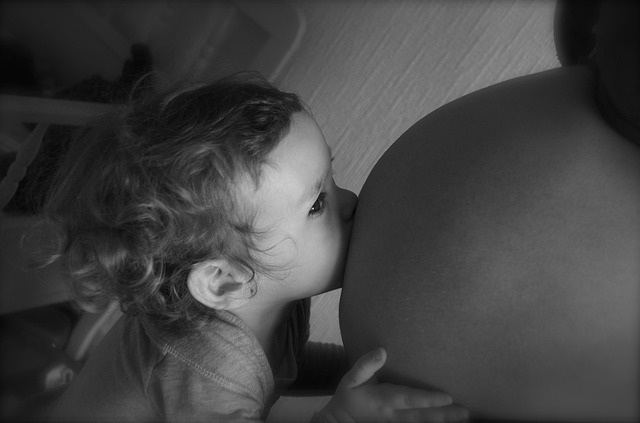Ever thought about what it’s like to donate your eggs? In this heartfelt narrative, we explore the experience through the eyes of Emily, a selfless individual who chose to help others start their families.
The Decision to Donate
For many individuals undergoing fertility treatment, the decision to use a donor—whether it’s eggs, sperm, or embryos—is substantial. According to Sarah, a dedicated fertility nurse, it’s crucial for everyone involved, including the donor, to understand the process and the associated rules regarding anonymity. “We want to ensure everyone is prepared for any outcome, and I feel honored to guide them through it,” she shares.
Once women have a positive experience with egg donation, many feel inspired to donate again. Sarah mentions, “One incredible woman has donated four times, resulting in six babies and two ongoing pregnancies.”
Emily’s Inspiration
At 30, Emily was already a regular blood donor, believing in the importance of supporting life-saving services. When she learned in 2018 that a close friend needed donor eggs to conceive, it solidified her intent to donate. She also met someone who was actively donating eggs, which encouraged her decision. “The experiences of my friends really helped me decide,” Emily explains. “All I had to do now was find the right time.”
Over the next few years, Emily engaged in discussions about egg donation with her family and her partner, Mark. As a biology researcher, she diligently explored the physical, emotional, and legal aspects of egg donation and felt empowered to proceed.
The Egg Donation Process
To donate eggs, you’ll undergo a partial IVF cycle, where fertility medications stimulate egg growth and ovulation. These eggs are collected, fertilized in a lab, and then frozen for use in another person’s treatment.
Emily’s Experience with TFP Fertility
Emily began her donation journey with TFP Fertility by completing forms detailing her genetic and medical history. Sarah reviewed these forms to check for any genetic disorders. Following this, Emily visited TFP Fertility for a blood test and an ultrasound of her ovaries, where she met Sarah for the first time. “Sarah made me feel at ease right away,” Emily recalls.
Next, Emily had a session of implications counseling. She was encouraged to watch informative videos about the donation process, covering biological, legal, and social considerations. “The most significant takeaway was that any child born from my eggs could access identifying information about me when they’re older,” she mentions. Sarah adds, “With today’s DNA matching websites, it’s vital for potential donors to understand the implications.”
Medication and Egg Collection
Before starting medication, Emily underwent additional blood tests to check for chromosome abnormalities. She then began her treatment. With a high Anti-Mullerian Hormone (AMH) level, she required only a brief course of medication to stimulate egg production. “I had injections for 12 days and then a gentle trigger shot to help my ovaries release the eggs,” Emily explains. “I experienced bloating and fatigue, but the process was relatively quick, lasting just over three weeks.”
When it came time for the egg collection procedure, Emily felt calm. Having undergone general anesthesia previously, she knew what to expect. After the procedure, she felt a bit drained and needed a restful weekend to recover.
The Outcome
In her first donation in 2022, TFP collected 38 eggs from Emily. Eight months later, she donated again, yielding another 42 eggs. Four families are now benefiting from her generous donations. “I felt a sense of joy knowing I could help others,” she shares.
The Issue of Anonymity
In the UK, egg donation is not anonymous. Children can access non-identifying information at age 16 and identifying information at 18.
Emily’s Final Thoughts
Emily believes it’s essential to openly discuss egg donation to normalize the process. “I don’t know if I want kids myself, and I feel this is a way I can support women who do,” she reflects. “Do your research and connect with others who have experienced this. It’s a sensitive topic, but sharing stories can help.”
She documented her journey on social media, receiving positive feedback and encouraging others to share their fertility journeys. You can find her on Instagram at @emilydonor92. “I hope my story inspires more women to consider donating.”
Who Can Donate?
To be an egg donor, one must be between 21 and 36 years old and meet certain criteria, including having a BMI between 18 and 35, being a non-smoker, and being free from serious health issues. If you think you could help someone achieve parenthood, it’s worth exploring this option.
If you’re interested in learning more about the journey to parenthood, check out one of our other blog posts, From Solo to Duo: A Journey to Parenthood. For more information on home insemination, visit this authoritative source or check out this excellent resource for comprehensive information on pregnancy and fertility.
Summary
Emily’s experience as an egg donor highlights the emotional and physical journey involved in helping others create families. With the right support and knowledge, more women might consider this noble path.

